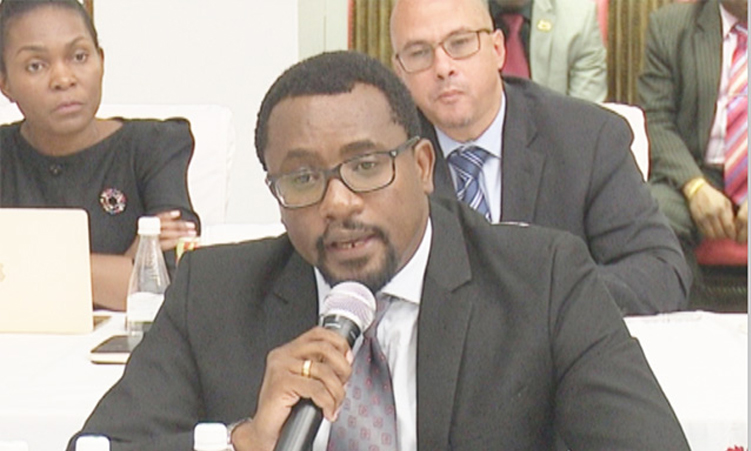United Nations resident coordinator Hopolang Phororo has cautioned that high youth unemployment can become a threat in Namibia.
Namibia’s unemployment rate stands at 34% and the youth unemployment rate at 48%, the United Nations agency said. Speaking during a media engagement yesterday, Phororo said: “What we are seeing from a lot of the surrounding countries is that if we don’t try to do something about it, it can become a real threat. And we don’t want it to become a threat.”
Phororo echoed president Hage Geingob’s sentiments from earlier this year when he warned “Youth, if they all [are] going to rise up, it will be a crisis, and they can get guns. Terrorism, that’s what I am talking about. They could be recruited and be misled by other forces. “… and since they are frustrated, they can join them. So, we can create jobs so that we diffuse the danger that is facing us,” Geingob said in March.
On independence day, unemployed youths took to the streets to protest against joblessness.
Phororo reiterated the government’s stance that alone they cannot create employment. “It needs an entire whole of society’s approach to address it,” she said.
In April, Geingob pleaded with the private sector to help create jobs, because the government is unable to address it.
Phororo suggested having dialogue with the youth and taking notes from the few countries that have managed to address the issue.
“I think there also needs to be the sharing of experiences from other countries where they might have had some successes with certain interventions,” she said.
Phororo advised against putting all eggs in one basket by looking at one sector to create jobs, but to rather focus on a number of sectors.
“Looking at the side of demand and supply, what sectors can create jobs? Tourism, agriculture, manufacturing are [aspects] that had been spoken about.
“And green hydrogen, yes, if it can create jobs, that’s great,” the resident coordinator stated.
KNOWLEDGE, SKILLS MISMATCH
The labour ministry last month told The Namibian that the quality of curriculums does not offer seamless integration between the knowledge and skills provided through the education system and the demands of the local labour market.
“As a consequence, many young people who graduate from these training institutions are unable to secure employment, because their technical capacities do not meet the needs of employers,” the ministry said.
The ministry further said there is a close connection between youth unemployment and the economic performance of the country. “The employment of the youth depends on the availability of investments that are directed at boosting the economic performance of a country and the creation of employment,” labour minister Utoni Nuyoma added. Meanwhile, a research paper, published by the National Planning Commission titled ‘Namibia’s Untapped Resource – Analysing Youth unemployment’ suggests that the government should develop job creation programmes targeted at the most vulnerable groups.
“Though youth unemployment in Namibia is high overall, it is particularly high among younger individuals, women and those residing in rural areas. Job creation programmes thus need to be targeted at these and other vulnerable groups,” the report reads. It further states that the youth face many barriers when entering the labour market in Namibia.
“Lack of sufficient education, a weak entrepreneurship culture and poor financial literacy appear to be some barriers to entry,” it further reads.
Stay informed with The Namibian – your source for credible journalism. Get in-depth reporting and opinions for
only N$85 a month. Invest in journalism, invest in democracy –
Subscribe Now!










